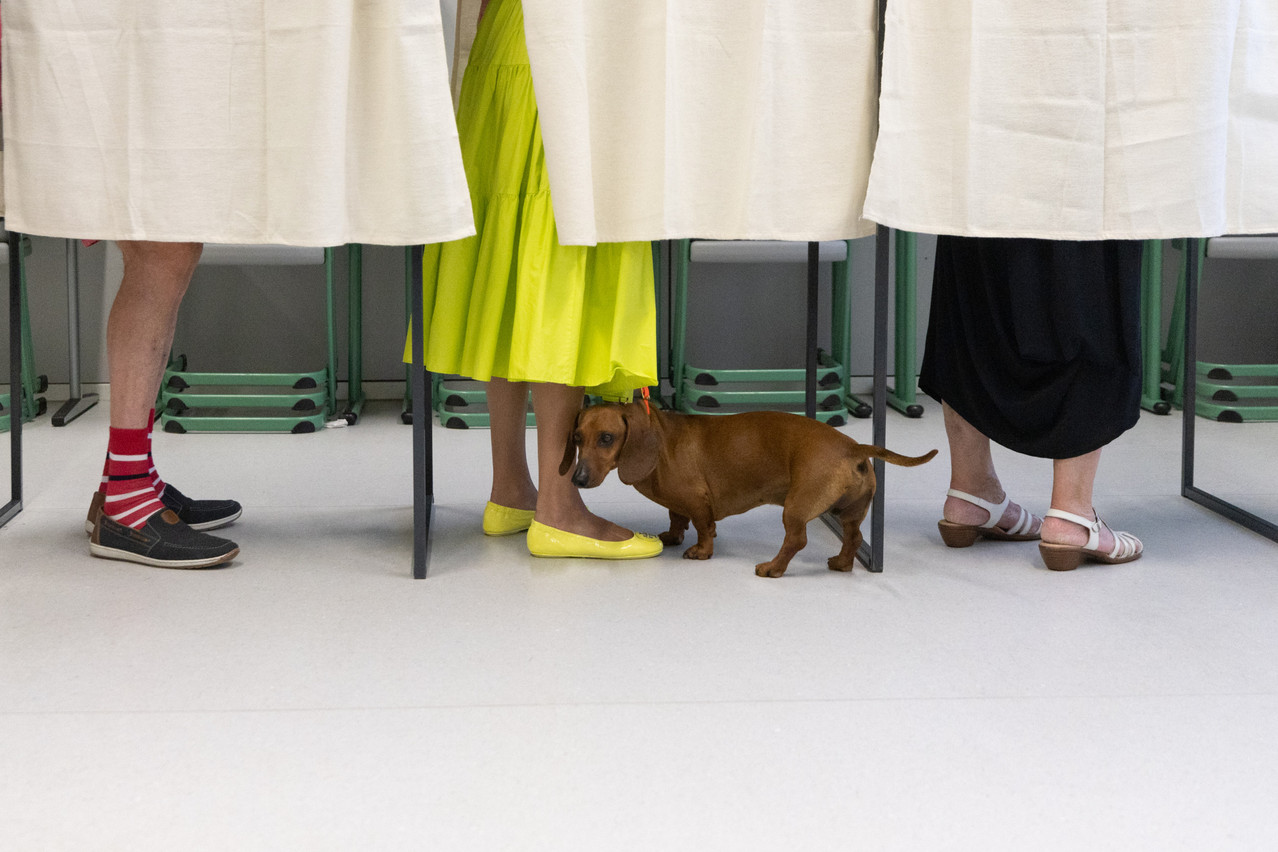What conclusions can be drawn from the latest Politmonitor poll--conducted by Ilres on behalf of RTL and Luxemburger Wort--published on 4 September?
According to 34% of those polled, (DP) is well placed to remain prime minister. He is also favoured by those who are 18-24 years old: 50% of this age group want him to remain in office.
Behind him are (CSV) and (LSAP), mentioned by 21% and 20% respectively. (déi Gréng) is far, far behind. Even among the undecided...
So is Bettel in a strong position to be re-elected? Don’t be so sure. His party is only third in terms of voting intentions (17.4%), a long way behind the CSV (28.3%). Between the DP and déi Gréng (10.7%), the gap is widening and the dynamic is worrying.
While all the parties represented in the chamber of deputies are seeing their voting intentions increase, the Greens are slipping (-2.1%). Will they be caught up in the wear and tear of power, as the LSAP was five years ago? Or have their values of protecting biodiversity, the planet and combating climate change become central--even centrist--values, causing them to lose their specificity?
We’ll find out on 8 October.
From intentions to seats
If the voting intentions revealed in the survey were converted into seats, the CSV would come out on top with 19 MPs--two fewer than in the current legislature--followed by the LSAP, which, with 13 seats, would recover the three MPs it lost to the Greens five years ago. The DP would have 11 seats and the Greens seven. Mathematically, the current coalition would not lose any seats and could be renewed. At the cost of a probable rebalancing between the LSAP and the Greens.
But other combinations are possible.
First, a CSV-LSAP coalition. This would have the advantage of reassuring the 39% of those polled by Politmonitor who would prefer a two-party coalition. It’s the old-fashioned way. A two-party coalition is also favoured by CSV leader Frieden.
A CSV-LSAP coalition is also possible. It would bring together 32 seats, one more than the current majority. This is a solution that would satisfy 22% of those polled.
While a DP-LSAP coalition appeals to 26% of those questioned, it is mathematically impossible.
On the other hand, a CSV-DP alliance cannot be ruled out, even if the two parties only muster “30 seats.” First, this is because relative majorities are more solid than absolute majorities. Second, the opposition parties have too many fundamental differences to imagine a common front.
In practical terms, under parliamentary law--specifically, article 51.2°2 of the rules of procedure of the Chamber of Deputies--the coalition proposal is put to the vote. In other words, it is neither adopted nor rejected. “In practice, the text will therefore be placed on the agenda once again by the Conference of Presidents at a subsequent public sitting, or even at the same plenary sitting if the chamber agrees,” explains Laurent Scheeck, secretary general of the Chamber of Deputies.
Political scientist believes that there is nothing to prevent a president from imposing his point of view. But Poirier believes that we could be entering a slippery slope that could polarise debates and erode confidence in the political system.
Primus inter Pares
Given that a CSV-DP coalition is not arithmetically unrealistic, who could be the next prime minister?
Frieden would have the advantage of heading the list of the country’s leading party. But in terms of personal votes, the advantage seems to lie with Bettel. In 2013, the last year they ran together, Bettel received 24,742 votes, compared with 17,612 for the head of the CSV list. In 2018, Bettel further increased his score by attracting 30,774 votes.
Finally, 29% of those polled preferred a three-party coalition.
And here, all scenarios are open. As long as neither the ADR nor déi Lénk are included, these two parties will act as push-backs for the four governing parties. These parties are more nuanced when faced with the Pirates, whose parliamentary strategy they are finding difficult to pin down.
This article was first published in French on . It has been translated and edited for Delano.
